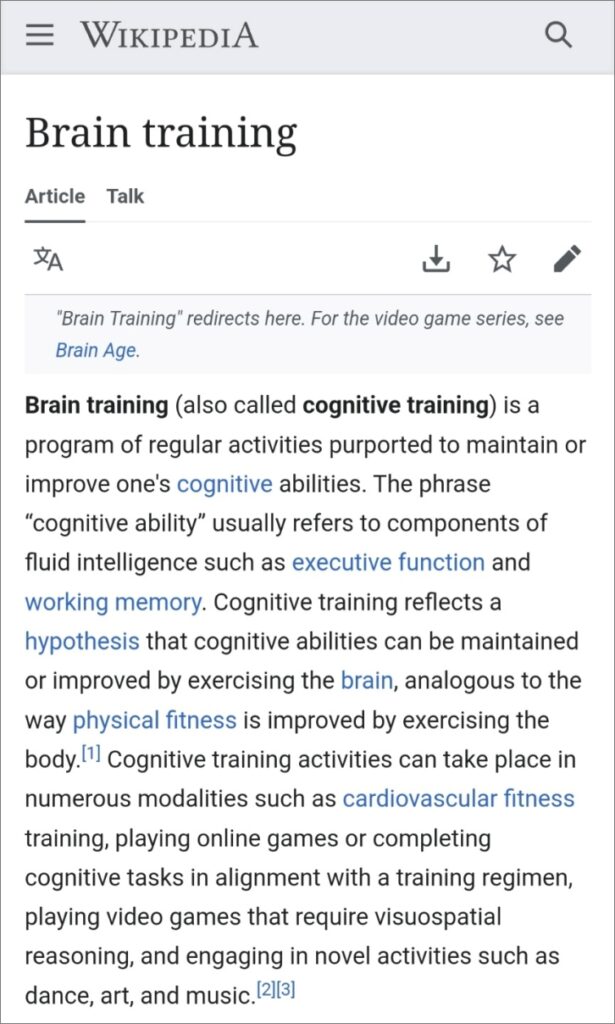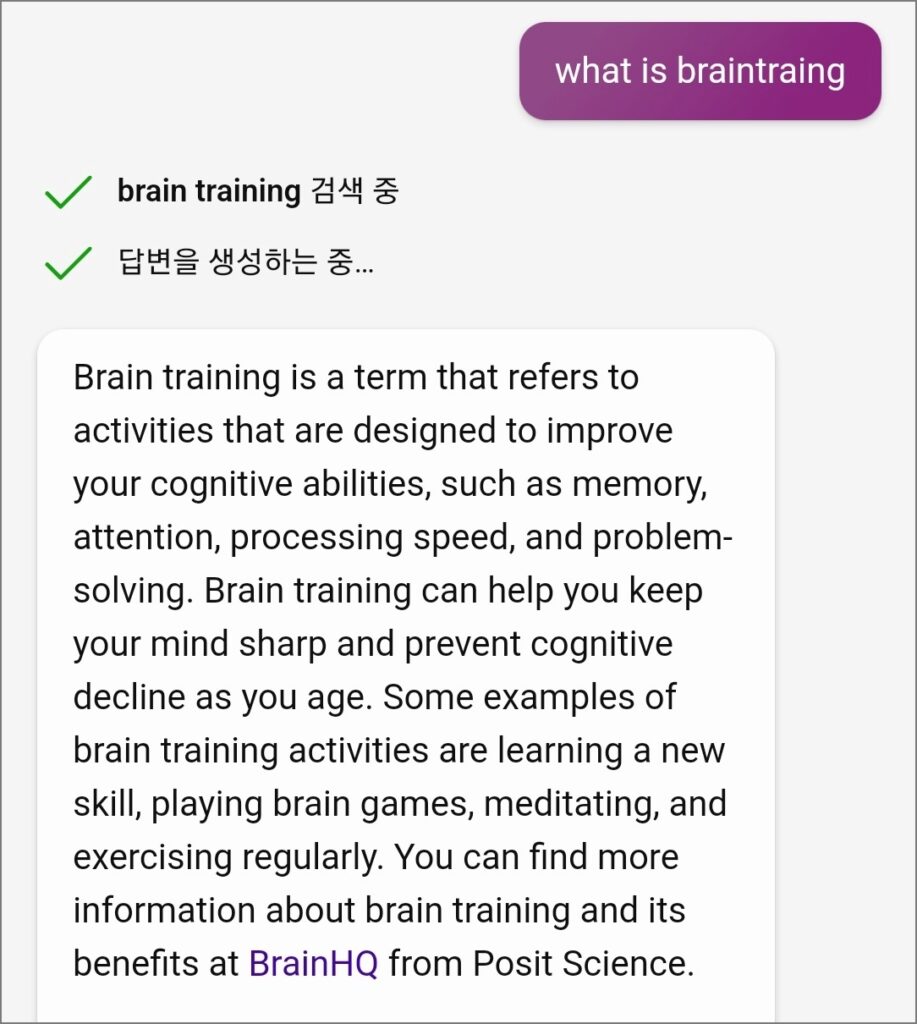
The brain was once primarily the focus of medical study. However, as neuroscience emerged as a leading scientific discipline in the late 20th century, there was a growing realization of the brain’s pivotal role in shaping human behavior and cognition.
This recognition spurred widespread enthusiasm across diverse fields including medicine, engineering, psychology, cognitive science, and education, all eagerly incorporating neuroscience findings and insights into their practices.
During the latter half of the 20th century, the concept of brain training, often encapsulated by the idea of neuroplasticity—the brain’s ability to change in response to training—started to attract significant attention across multiple domains, including healthcare, education, and personal development.
The change in perception of the brain as an object of training and not just a medical treatment or scientific research is an important turning point. This is because most people have a myriad of problems that they want to overcome in their lives, such as stress, emotional conflicts, breaking negative habits, and developing their skills.
It’s worth noting here that there are differing cultural and philosophical perspectives on brain training. Without an understanding of these differences, there is a risk of a simplistic approach to brain training.
Cognitive Training: A Western Approach
First, if you search for “brain training” in Wikipedia, the world’s largest encyclopedia, you’ll find the following explanation.
“Brain training (also called cognitive training) is a program of regular activities purported to maintain or improve one’s cognitive abilities. The phrase “cognitive ability” usually refers to components of fluid intelligence such as executive function and working memory.”


The key point is that brain training is understood as cognitive training, focusing on maintaining or improving cognitive skills. If you ask A.I. Chat GPT, the answer is almost the same. It also focuses on ‘improving cognitive function’. Cognitive function is a higher function of the frontal lobe in terms of brain structure and function.
This perspective on brain training is rooted in the modern philosophical view of the mind and body, often characterized by mind-body dualism.
Descartes, the father of modern philosophy in the West, articulated the view that the mind is distinct and functionally autonomous from the body. According to Descartes, the body’s senses have the potential to deceive and mislead the mind, leading to the proposition that the role of the body in the acquisition of knowledge and reasoning should be constrained. This perspective laid the groundwork for the contemporary concept of mind-body dualism.
In recent years, advancements in neuroscience have challenged some long-held philosophical premises. Among these developments, Dr. Antonio Damasio, a highly regarded figure in the field of neuroscience, has made notable contributions. In the early 2000s, Damasio published a seminal book titled “Descartes’ Error: Emotion, Reason, and the Human Brain,” which has had a significant impact on our understanding of the mind-body relationship. While Damasio’s work offers valuable insights into the complexities of human cognition, it doesn’t entirely invalidate Descartes’ premises. Instead, it provides a different perspective, emphasizing the interplay between emotion, reason, and brain function.
The Western perception of brain training centered on cognitive functions does not reflect the full nature of human development mechanisms as revealed by advances in biology and neuroscience in the 21st century.
The human brain goes through a long process of development from birth to adulthood through interactions with the environment. The first stage is physical development, when the baby’s brain is able to communicate with its own body and regulate itself, followed by emotional development, when it interacts with objects outside the body. Finally, the outermost part of the brain, cognitive learning, develops. In other words, the physical-emotional-cognitive balance influences adult learning and thinking.
Damasio’s scientific research on human emotions has shown that “human decision-making is highly driven by emotion. Emotions play a leading role in the judgment and decision-making process, and humans are heavily influenced by their emotional memories and states rather than taking the time to make rational decisions.”
In particular, it reveals that feeling is not merely a by-product or ornament added to emotion, but is a psychic detector of the interior of living things, a witness to ongoing life activity, and, along with emotion, plays a crucial role in the regulation of life. This brings emotions and feelings into the realm of neuroscience and brings an end to centuries of mind-body dualism.
Today’s advances in human sciences may not tell us everything about “how humans change,” but they do suggest that we need to shift our perception of the body-mind interaction. What matters is the direction of change, from body to mind.
A Holistic Approach: Brain Training from an Eastern Perspective
Noteworthy is the Brain Trainer, a state-certified private qualification issued by the University of Brain Education in Korea. It received approval from the Ministry of Education, Science, and Technology (now the Ministry of Education) of the Republic of Korea in 2009. Brain Trainers are experts in this domain, devising training programs rooted in a systematic and scientific understanding of brain function and characteristics, aiming to augment an individual’s brain capabilities.
The definition and qualification categories of Brain Trainer exemplifies a holistic approach to brain training.
The definition of brain training is: “Brain training aims to restore and improve the balance of mind and body through various physical, psychological, and cognitive stimuli and training that affect the body and mind. It aims to realize individual self-realization and benefit society by utilizing the brain well. Restoration of the mind and body comes first, and improvement is the next step.
The range of brain training methods offered by Brain Trainer is clear, as are the different levels of training. The types of brain training methods can be categorized into basic brain training, cognitive function training, and performance enhancement training.
In other words, basic brain training to affects the body and mind, is presented as a necessary condition for cognitive function training and performance-enhancing training such as cognitive function training and creativity. Basic brain training involves relaxation training and meditation training, which are Eastern methods that lead to mind-body interaction.
The human brain expresses a wide range of functions, from the fundamental ones that sustain everyday life to complex higher-level ones, such as emotional mechanisms, cognitive thinking, and learning.
If movement is the first brain development, then emotion is the second, followed by cognitive learning. Higher cognitive functions recognize and provide direction at a higher level when the myriad of lower functions are working properly.
It is worth noting that the Korean Brain Trainer qualification is not limited to acquiring knowledge about the brain, but the purpose of brain training is self-realization through restoring mind-body balance and improving performance.
By. Rae-hyuk Chang, Professor of the Department of Brain Education, Global Cyber University

